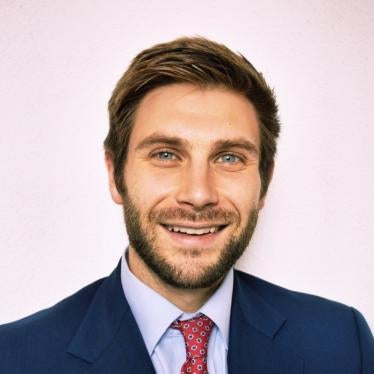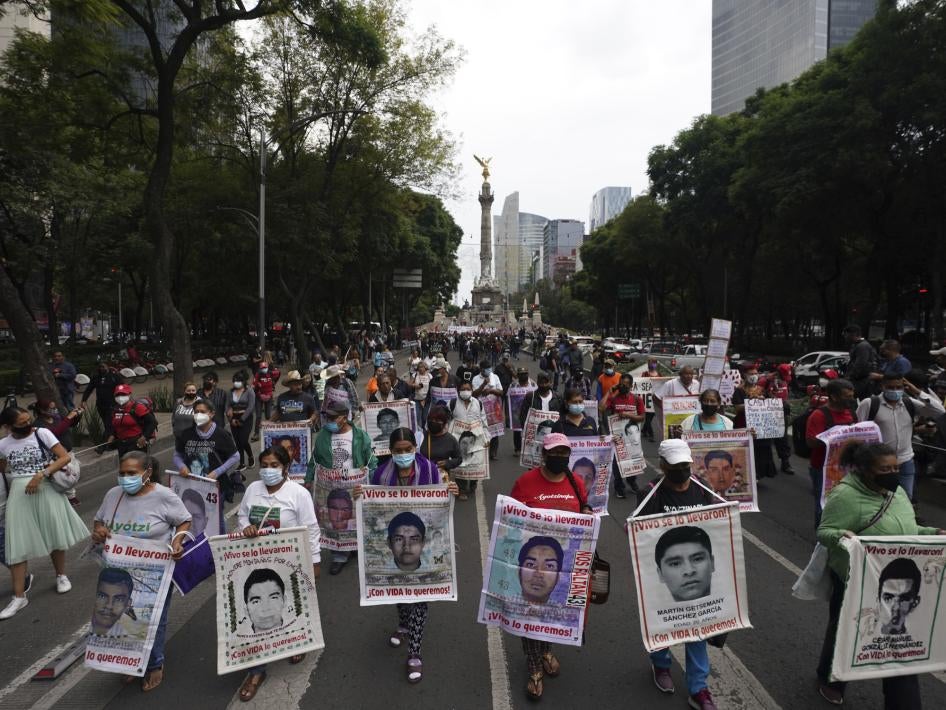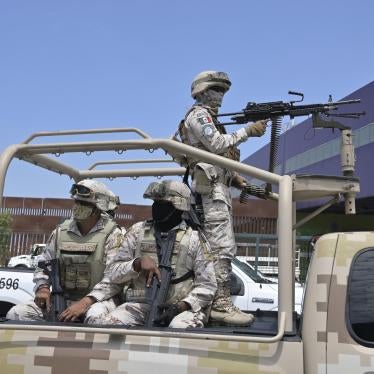The 2014 kidnapping and enforced disappearance of 43 students from Ayotzinapa Rural Teachers College in Guerrero state is one of Mexico’s most infamous unresolved atrocities.
Earlier this year, it looked like progress was finally being made in tracking down those responsible, but hopes are now dimming.
In the immediate aftermath of the disappearance, Human Rights Watch documented serious flaws in the official response. Later, a group of experts appointed by the Inter-American Commission on Human Rights (IACHR) revealed authorities had perpetrated a massive coverup, torturing suspects and mishandling evidence to create a false version of events.
When President Andrés Manuel López Obrador took office in 2018, he promised to finally determine what happened and bring those responsible to justice. To ensure a credible investigation, the attorney general created a special prosecutor’s office for the case, naming a respected human rights defender as its head and promising full independence.
The special prosecutor made important advances. And in August authorities obtained 83 arrest warrants for government officials, alleged cartel members, and soldiers implicated in the disappearance and coverup.
But a series of events and revelations in recent weeks have called into question authorities’ willingness to resolve the case.
On September 27, the special prosecutor suddenly and unexpectedly resigned. Days later, the IACHR group of experts released a report alleging the attorney general had been obstructing the investigation for months, including by refusing to execute arrest warrants or conduct forensic analyses; arbitrarily removing staff and cases from the special prosecutor’s office; intervening to get arrest warrants against members of the military and government officials cancelled, and opening an internal investigation against the special prosecutor. Two weeks ago, the attorney general appointed a new special prosecutor to the case: a political ally of the president with no experience investigating human rights abuses.
It is notable that his interference with the case appears to have focused on accusations against members of the military. The IACHR group of experts has repeatedly expressed concern that the military refuses to hand over relevant information on the case despite a presidential order to do so. And recently leaked emails suggest the secretary of defense asked the president to personally intervene to prevent soldiers from being prosecuted.
The Ayotzinapa case has been emblematic of the failings of Mexico’s dysfunctional justice system, where impunity reins. If that is to change, authorities should do everything in their power to ensure there is an independent, credible investigation.










